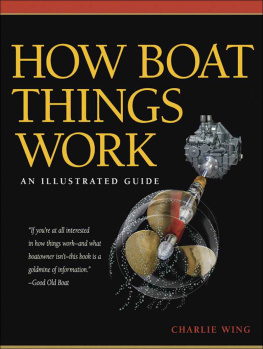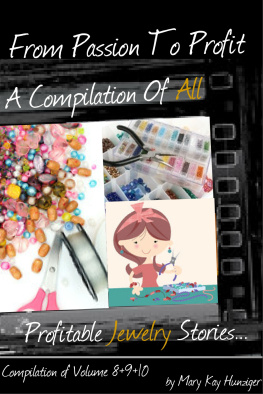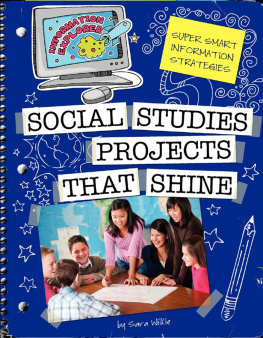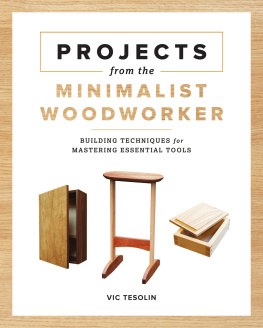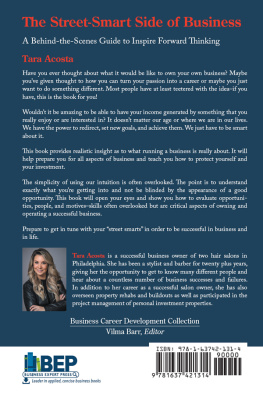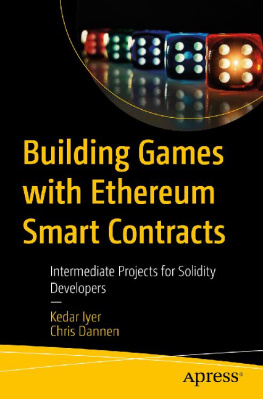ADVANCE PRAISE FOR
PASSION PROJECTS FOR SMART PEOPLE
A book that celebrates and demonstrates creativity... unfailingly positive.
Foreword Reviews
Every science teacher with a pair of hiking boots should read this book!
Chris McKay, NASA planetary scientist
This up-beat, can-do book is delightful to read and energizes you to get up and out to learn and teach science. The book is a guide that provides much practical advice on where to start and become involved in a myriad of ways to make the world a better place, and have fun too! The book has great detail with step by step guidance on how to maximize opportunities, where to seek support and how to cultivate your passions.
Sarah Allen, Ph.D., wildlife biologist
Passion Projects for Smart People is inspiring! Its proposals of interesting ventures and its profiles of dynamic individuals will be motivating to anyone seeking a greater sense of accomplishment and fulfillment in their lives.
David R. Lapp, physics teacher, Tamalpais High School and author of The Physics of Music and Musical Instruments
Dr. Wing is a smart man with diverse experience following his passions. His easy-to-read book is full of relatable anecdotes and practical information for anyone looking to pursue a more enriching life.
Joe Stewart, high school science teacher leader
PASSION PROJECTS
FOR SMART PEOPLE
Turn Your Intellectual Pursuits
into Fun, Profit, and Recognition
Michael R. Wing, Ph.D.

Passion Projects for Smart People
Copyright 2017 by Michael R. Wing. All rights reserved.
Main cover image courtesy Mc Satori/Shutterstock
Additional images: www.publicdomainpictures.net
and pixabay.com
Published by Quill Driver Books
An imprint of Linden Publishing
2006 South Mary Street, Fresno, California 93721
(559) 233-6633 / (800) 345-4447
QuillDriverBooks.com
Quill Driver Books and Colophon are trademarks of
Linden Publishing, Inc.
ISBN 978-1-61035-306-9
135798642
Printed in the United States of America
on acid-free paper.
Library of Congress Cataloging-in-Publication Data on file.
Contents
You cant stop thinking about a passion project.
Affiliation opens doors and give you credibility.
Its like buying a lottery ticket, except with better odds.
Attend a conference or study tour, or do fieldwork. Sometimes for free!
Share your passion through extension courses, adult education, community colleges, arts organizations, and nonprofits.
There are no passengers on spaceship earth. We are all crew.
Publish for satisfaction, closure, credit, and posterity.
You need projects to be happy.
Introduction
This is the story of a ninth grade teacher who learned to do more with the resources he already had. He did field work in the Galapagos, Costa Rica, Alaska, Finland, Namibia, India, the United Arab Emirates, the Pacific Ocean and the high Arctic, with outside organizations paying his way. He published in peer-reviewed journals, won grants from corporations and the National Geographic Society, and collaborated with organizations like NASA, the University of California, and the National Park Service. His projects range from marine biology to high altitude gardening, astrobiology, to archaeology. It took time for him to discover opportunities that were hiding in plain sight. One project would lead to another. Doing projects made him more creative. Along the way he met other people who use ordinary resources to do remarkable things. That teacher was me, and my life is richer now.
Where do I find the time? I can afford to move ahead slowly on my own projects since theyre not my primary source of income. I spend only a few hours most weeks on all of these activities put together. Most of my time goes to my students and my family. My students participate in these extracurricular projects, and as my own children get more involved in them, my family is starting to benefit, too. But really I do them for my own personal satisfaction. I love coming to work in the morning. I cant retire; I would lose the affiliation with my school that makes some of these projects possible.
It sounds like extra work for no pay, but besides the fun of doing them, projects sometimes lead to extra earnings and opportunities. Once you become an expert on something, you can get hired for consulting services. You can teach a class. You may become eligible for free travel and conferences. You may write a book that makes money. The people I have profiled in this book earn money in all of these ways, and so do I. Most years I supervise a class at my school for advanced students called independent science research in addition to my full-time regular teaching, and I am paid thousands of extra dollars for doing that. If you are a teacher, you may want to look into this possibility with your district. I also often get to travel for free to interesting places.
Ive met people who exemplify this lifestyle in different ways. A few are school teachers like me but there are also other working professionals, retirees, and stay-at-home parents. Their areas of expertise include the natural sciences, anthropology, history, and the arts. What they all have in common is projects that started small but got traction. The payoffs were life-altering. They have ongoing projects, institutional affiliations, and collaborators. They apply for grants and apply to participate in programs. They travel with professional purpose and often they get someone else to pay for it. They mentor others and publish what theyve done for posterity. You can do these things, too. The following chapters give specific examples, from my own and other peoples experiences.
Have Projects
If you have built castles in the air, your work need not be lost; that is where they should be. Now put the foundations under them.
Henry David Thoreau, Walden
The people in this book have projects which are long-term, creative, and original: things nobody has done before. They think about their projects often, even when theyre not working on them, and that adds meaning to their lives and gives them satisfaction. The French have a related conceptle jardin secret (the secret garden)that most often describes an extramarital affair. This book is not about how to do that. Still, having an absorbing but part-time project to occupy your waking thoughts is sort of like having a romantic affair. To live like these people do, you need at least one ongoing project.
Where does the inspiration for an original project come from? Louis Pasteur once said that chance favors the prepared mind. You need experience. My best ideas come to me on a long vigorous hike, or while traveling to a new place, or otherwise doing something a bit outside of my comfort zone. They are stimulated by conversations with creative people. They are often syntheses of two or more ideas, observations, or problems that previously appeared to be unrelated. They arise from projects I am already doing. The ideas do not come to me during my daily work/life routine, so I have to get outside of that framework. It can help to keep a notebook or the electronic equivalent; you will find yourself running for it because all the good stuff will occur to you when you dont have it on your person. Here are some stories about projects we do at my school that illustrate the apparently random way that chance can favor the prepared mind:


